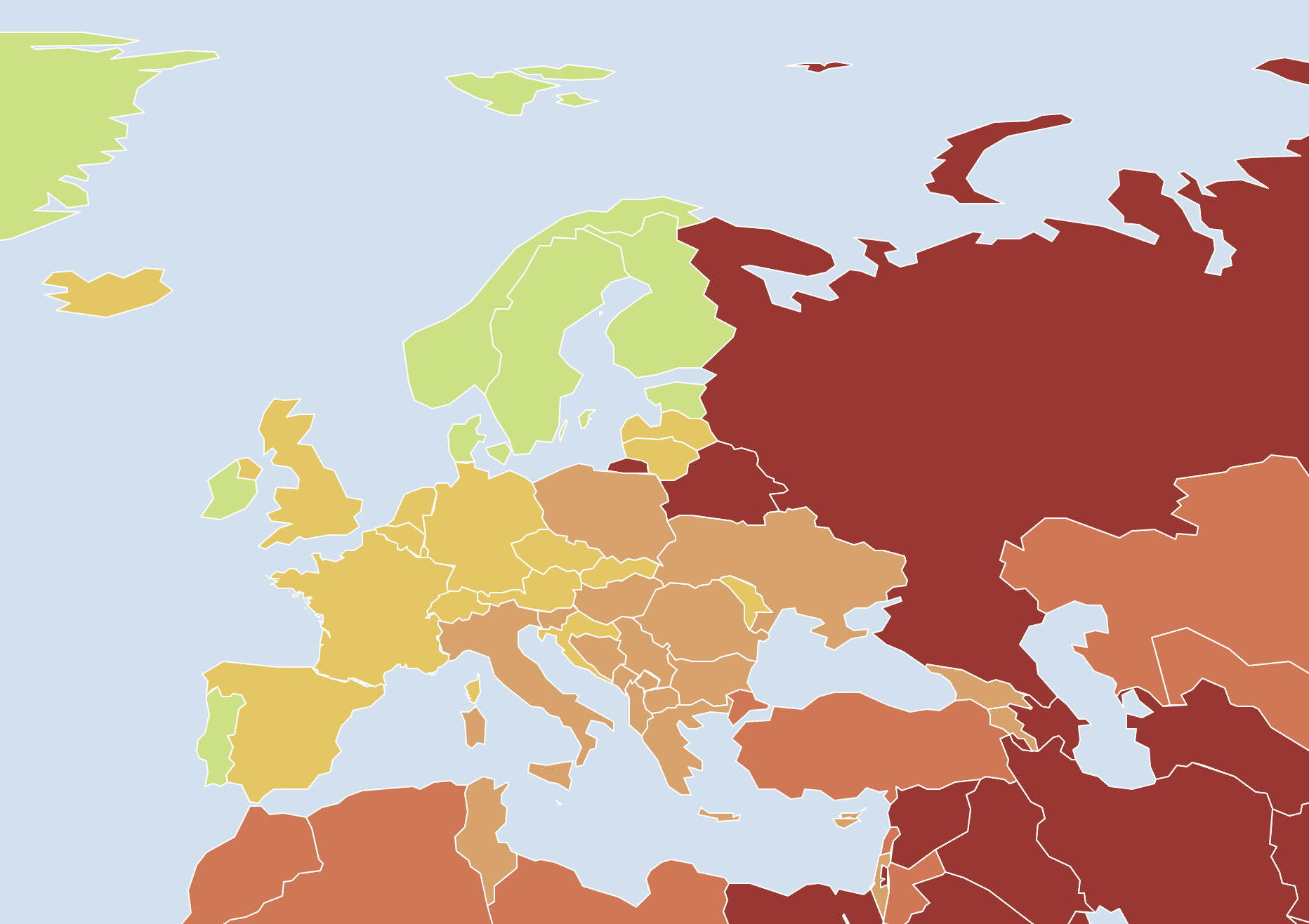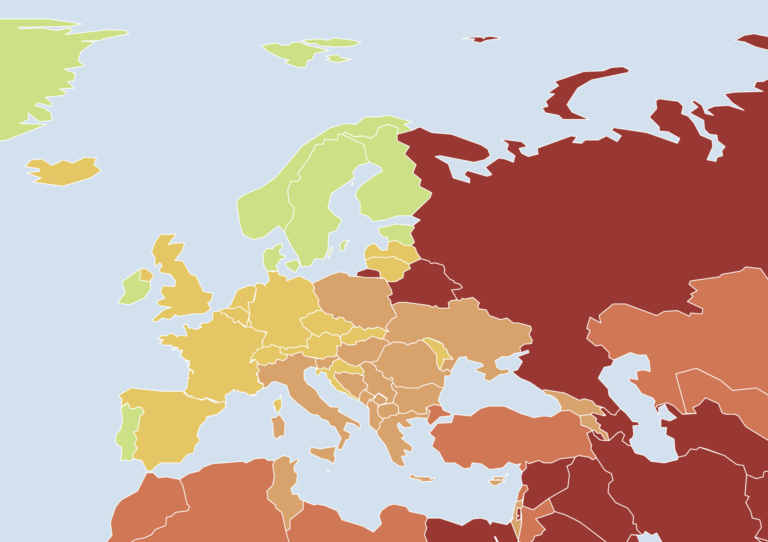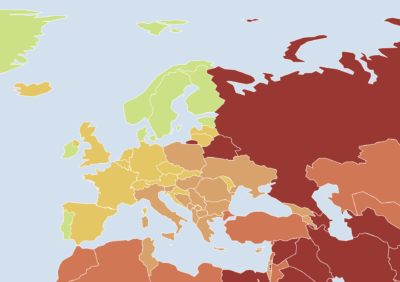Situation in Visegrad Four countries reflects broader trends – as Reporters Without Borders (RSF) note in World Press Freedom Index 2022, whole European Union is caught between two extremes.
Once again, the state of media freedom in our region is the worst in Hungary, which ranked 85 (a rise from 92 in 2021). The market is strongly concentrated in the KESMA Foundation, which, just like state-owned media, serves the government. The foundation owns about 500 national and local media organisations. However, independent media maintain strong positions in other segments of the national market. Hungarian journalists are only rarely subject to physical assault or unjustified police interrogation. However, the Hungarian state is the only European Union member suspected of having arbitrarily monitored journalists using Pegasus software – including VSquare collaborator, Szabolcs Panyi from Direkt36.
Poland is ranked 66 and is the only V4 country to see a drop in position in this year’s index (down from 64 in 2021). RSF points out that after turning the public media into instruments of propaganda, the government has multiplied its attempts to change the editorial line of private media and control information on sensitive subjects. Last year the government attempted to restrict the media by special legislation. As a result, law enforcement authorities deliberately prevented journalists from covering the refugee crisis near the border with Belarus through arbitrary and violent arrests.
The situation is better in the other two Vysegrad countries. Slovakia is ranked 27, a big rise from 35 in 2021. RSF notices that the current government promised new laws to improve the protection of journalists and their sources, to strengthen the editorial and financial independence of public broadcasting, to increase the transparency of media ownership and funding, and to reduce prison sentences for defamation. Their adoption has been, however, progressing slowly.
The best score was achieved by the Czech Republic, which ranked in an impressive 20th position (up from 40 in 2021). It is mainly thanks to the fact that the new government loosened its grip on the press. RSF remarks, however, that freedom of the press is threatened by the high concentration of privately owned media and the pressure exerted on public broadcasting.
The World Press Freedom Index is an annual publication assessing press freedom in 180 countries and territories. RSF developed a new methodology to compile the latest Index. In order to reflect press freedom’s complexity, five new indicators are now used to compile the Index: the political context, legal framework, economic context, sociocultural context, and security. RSF warns that in light of this new methodology, care should be taken when comparing the 2022 rankings and scores with those from 2021
Read the whole ranking on https://rsf.org.







